Zebrafish Tools for the Screening of Osteogenic Compounds
---------------------------------------- REGISTRATION DEADLINE EXTENDED UNTIL 8th OF JULY -----------------------------------------
Bone disorders affect millions of people worldwide and current treatments have a limited efficacy often accompanied by side effects. The discovery of novel bone anabolic compounds with either pharmaceutical or nutraceutical value is thus needed. The zebrafish has recently emerged as a model for human bone diseases but also as a system for the screening of compounds that would treat or prevent these diseases. Beyond the technical advantages over traditional models (e.g. rodents), the high similarity of targets, physiology, drug metabolism and pharmacology in comparison to humans further highlights the potential of zebrafish as a robust model for drug screenings. The BIOSKEL lab (CCMAR, University of Algarve) has developed several zebrafish assays to evaluate the osteogenic potential of natural or synthetic compounds. Within the scope of the training workshop here presented, we propose to share both the theoretical and practical knowledge required to go through all the steps of those procedures.
Main topics:
- Basis of zebrafish biology and husbandry
- Current knowledge on drug screenings
- Ways of exposing zebrafish to experimental compounds
- Imaging of bone structures and morphometric analysis
- Assessment of compound osteogenic and regenerative potential
Zebrafish tools presented in this workshop are the basis of a first-line medium throughput screening methodology.
In the drug discovery pipeline, first line screenings represent a critical filter to reduce the amount of compounds to be further tested and are therefore time and money savers. Until recently, in vitro cell systems or in vivo rodent systems were commonly used, although several bottlenecks existed (e.g. a cell line cannot represent the complexity of a whole organism, rodents are slow growers, expensive to maintain and have an intra-uterine early development). However, in vivo zebrafish systems overcome those obstacles and have emerged as a promising alternative to the traditional systems.
This workshop will provide both conceptual and experimental know-how on zebrafish screening systems through lectures given by experts in the field. Attendees will also have the opportunity to acquire some technical expertise through hands-on sessions where they will learn to manipulate zebrafish tools toward the screening of osteoactives.
Basic formation in biology, biomedical sciences or biochemistry. Knowledge of basic molecular biology techniques is necessary to understand some concepts.
IMPORTANT: Participants are asked to bring their own computers to perform the image analysis and morphometric assessments. If possible ImageJ should be previously installed (available for free at https://imagej.net)
Monday 15th – Zebrafish husbandry and drug screening
9:00 - Welcome Reception
A welcome reception in the presence of the local representatives of the ASSEMBLE+ project will initiate the workshop then an overview of CCMAR main infrastructures and areas of research will be given. In a short (5 min) presentation, attendees will present their scientific background and research interests.
11:00 - Coffee-break
11:30 - Basis of zebrafish biology and husbandry. (Paulo Gavaia, CCMAR & Gil Martins, CCMAR)
12:15 - Skeletal biology and metabolism: cell types and mechanisms underlying bone formation and remodeling. (João Cardeira, MPI-HLR)
13:00 - Lunch
14:00 - Visit of BIOSKEL zebrafish facilities
14:30 - Basic principles of drug screenings; Zebrafish screening systems; Methods used to administrate compounds (e.g. waterborne, embryo microinjection, intraperitoneal injection and dietary supplementation). (Vincent Laizé, CCMAR & Jorge Dias, SPAROS Lda)
15:30 - Hands-on 1: Manipulation of zebrafish at several developmental stages; Microinjection of fertilized eggs; Intraperitoneal injection of adult specimens. (Paulo Gavaia, CCMAR; João Cardeira, MPI-HLR; Marco Tarasco, CCMAR; Gil Martins, CCMAR)
16:30 - Coffee-break
17:00 - Hands-on 1 (continuation)
Tuesday 16th – Screening for osteogenic compounds: the operculum based-system
10:00 - Zebrafish genetics: principles of transgenesis and mutagenesis. (Anabela Bensimon-Brito, MPI-HLR)
11:00 - Zebrafish toolbox: mutant lines modeling human bone disorders and transgenic lines/in vivo systems to assess osteogenic or osteotoxic activities. (M. Leonor Cancela, CCMAR-UALG)
12:00 - Coffee-break
12:30 - Zebrafish models for bone development and disease studies: a focus on the operculum, calvaria and vertebral column based-system to assess and study the osteogenic potential of natural extracts and purified compounds. (Marco Tarasco, CCMAR & Anabela Bensimon-Brito, MPI-HLR)
13:30 - Lunch
14:30 - Staining and imaging bone structures for morphometric analysis and assessment of the osteogenic potential of compounds. (Anabela Bensimon-Brito, MPI-HLR)
15:30 - Hands-on 2: Exposure of zebrafish larvae to experimental compounds; Alizarin red staining of zebrafish larvae and visualization of calcified structures; Imaging of the opercular bone using a fluorescence stereomicroscope. (Marco Tarasco, CCMAR; Joana Rosa, CCMAR; João Cardeira, MPI-HLR; Anabela Bensimon-Brito, MPI-HLR; Vânia Roberto, CCMAR; Gil Martins, CCMAR)
17:00 - Coffee-break
17:30 Hands-on 3: Image analysis and morphometric assessment of the operculum. (Marco Tarasco, CCMAR; Joana Rosa, CCMAR; Vânia Roberto, CCMAR)
20:30 Workshop dinner (optional)
Wednesday 17th – Drug screening and regeneration: the caudal fin based-system
10:00 - Basis of regenerative medicine. Bone regeneration in vertebrates. Zebrafish as a regenerative model. (João Cardeira, MPI-HLR)
10:45 - The zebrafish caudal fin and scales systems to assess and study the osteogenic and regenerative potential of natural extracts and purified compounds. (João Cardeira, MPI-HLR & Marco Tarasco, CCMAR)
11:30: Coffee-break
12:00 - Basis of caudal fin imaging acquisition, image analysis and data processing regarding the osteogenic/regenerative potential of compounds. (João Cardeira, MPI-HLR & Marco Tarasco, CCMAR)
13:00 - Lunch
14:00 - Hands-on 4: Caudal fin amputation; Alizarin red in vivo staining; visualization and imaging of the newly formed lepidotrichia using a fluorescence stereomicroscope. (Marco Tarasco, CCMAR; João Cardeira, MPI-HLR; Anabela Bemsimon-Brito, MPI-HLR)
15:30 - Coffee-break
16:00 - Hands-on 5: Image analysis and morphometric assessment of new bone mineralization and patterning. (Marco Tarasco, CCMAR; João Cardeira, MPI-HLR; Joana Rosa, CCMAR)
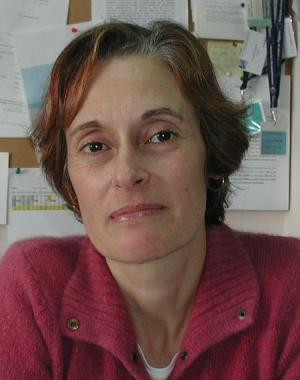
M. Leonor Cancela
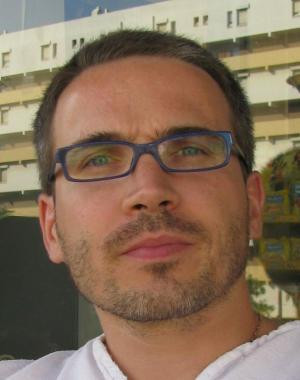
Vincent Laizé
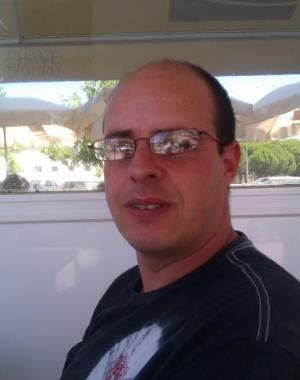
Paulo J. Gavaia
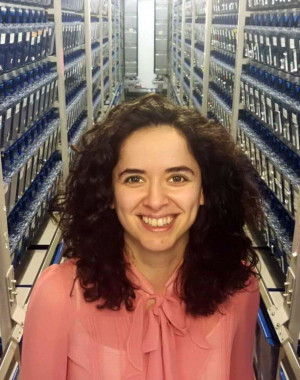
Anabela Bensimon-Brito
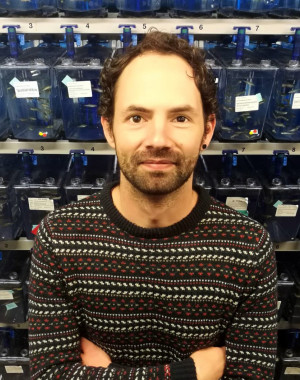
João Cardeira
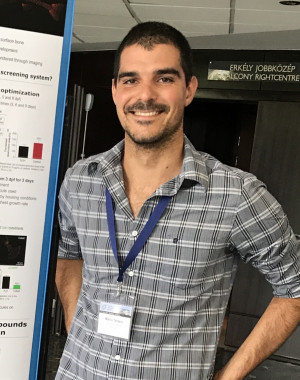
Marco Tarasco

Gil Martins
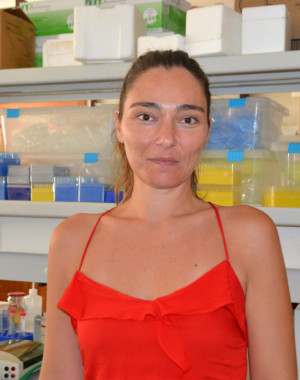
Vânia P. Roberto

Joana T. Rosa
Accommodation: Booking and payment must be arranged directly by the Trainee or Home Institution. A list of suggested hotels is provided below:
- Stay Hotel Faro
http://www.stayhotels.pt/
(+351) 289 898 080
- Faro Boutique Hotel
www.faroboutiquehotel.pt
(+351) 289 037 300
- Frangaria
http://www.frangaria.com/inn/hHome.php
(+351) 289 887 700
- Residences of the University of Algarve
(Contact CCMAR secretariat for reservations - lleman@ualg.pt)
CCMAR - Centre of Marine Sciences
University of Algarve
Campus de Gambelas, 8005-139 Faro, Portugal
Tel: +351 289 800 057, +351 289 800 900 ext. 7057
Fax: +351 289 800 069
- All course materials
- Coffe breaks
- Lunches




